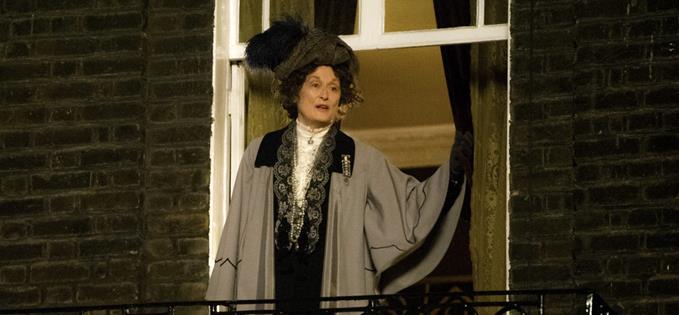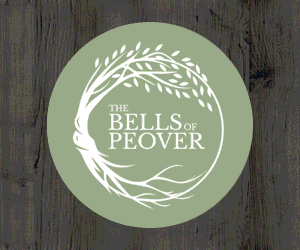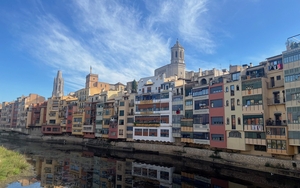*****
SUFFRAGETTE received its second premiere (if such a thing is possible) in Manchester last week in aid of the Pankhurst Trust.
The depiction of the treatment afforded to suffragettes both in and out of prison is horrifyingly brutal
As is well-known locally, the Women’s Social and Political Union, the campaigning organisation which earned its members the ‘suffragette’ term, was born in Manchester on 10 October 1903 when Emmeline Pankhurst invited a small number of women to meet at her home, 62 Nelson Street.
The group revitalised the campaign for Votes for Women, memorably moving the movement to a higher gear outside the Free Trade Hall on Peter Street when elder daughter Christabel and fellow campaigner Annie Kenney were arrested and taken to Manchester Town Hall Police Station.
Film-writer Abi Morgan has chosen to contain the story in London, between key events. In 1912 the by-then militant suffragettes famously launched volleys of stones, breaking every shop window in London’s Oxford Street; more famously, in June 1913, Emily Wilding Davidson was trampled and killed by the King’s horse at the Epsom Derby.
Suffragette focuses on one fictional character, East-End laundry worker Maud Watts, played by Carey Mulligan. Maud's fierce analysis of the injustices of life is fired into action by co-worker Violet Miller (played by Anne-Marie Duff) given practical support by unofficial pharmacist Edith Ellyn (Helena Bonham Carter) and spurred to further action by an inspirational speech from the famed and fabulous Emmeline Pankhurst (Meryl Streep) in a fleeting, almost cameo, performance.
Maud quickly realises that the difficulties she and others face run through the generations and will only be solved by powerful legislative change. Her dilemma, to campaign and sacrifice family life, or to accept the current system, is never explicitly stated, instead Carey Mulligan’s eyes reflect her dawning realisation of the painful consequences of her choices.
While the removal of the Manchester part of the story is an initial disappointment for Manchester audiences, the focus on Maud places the story where it really began; in the injustices of cruel workplace discrimination, often reinforced in domestic unfairness, and supported by a legislative framework which kept women in their lower place while denying them direct means of redress.
The film captures the sweat, grime and controlling insecurity of working class life at the start of the twentieth century; its depiction of the treatment afforded to suffragettes both in and out of prison is horrifyingly brutal. Of course, there are Hollywood moments shoe-horned in: the tear-jerker, the unnecessary explanations of how things worked, and a bow towards modern sensibilities, but this serves to make the film accessible to a wider audience. Films can rarely do justice to the lengthy, often dull, process of securing real political change, preferring instead to highlight a few trenchant moments. Viewers wanting a more thorough analysis of how the vote was won will need to look further; but it’s unfair to criticise a motion picture for being an incomplete text book.
Writer Abi Morgan and director Susan Gavron have chosen the high action route instead, conveying the excitement as well as the fear facing those who chose the suffragette route, and giving modern young women a movement and passion they can admire and honour.
 Meryl Streep stars as Emmeline Pankhurst
Meryl Streep stars as Emmeline PankhurstIt’s hard to avoid a gasp of ironic increduilty on hearing that male roles apparently proved a little difficult to cast as the parts were not considered meaty enough for many actors. So full marks for a stand-out performance of depth from Brendan Gleeson as Inspector Steed, and credit also Ben Whishaw, Samuel West and Adrian Schiller, who all do justice to smaller roles.
The film ends on a roll call of the dates women were granted the vote: not all countries have got there yet.
And the fight for women’s right is still ongoing. The charity premiere was attended by Doctor Helen Pankhurst, great granddaughter to Emmeline and granddaughter to Sylvia, and other women involved in continuing campaigns for women’s rights.
Dr Helen Pankhurst says: “Suffragette is a beautiful, powerful and ultimately uplifting film. I hope it will inspire all those who watch it, reminding them of past sacrifices and present benefits. It is fitting that there is a premiere in Manchester where it all began, and that this should be in aid of the Pankhurst Trust which continues to explore the legacy of the suffragette movement; past, present and future."
“The film gives us a wonderful opportunity to reflect on the achievements of the suffragettes,” says Gail Heath, Chief Executive of the Pankhurst Trust, “reminding us of the challenges they faced, and their strength and courage in pursuing their quest for equality.
“The premiere will also mark the launch of a campaign to secure funding to transform the Pankhurst Centre into a ‘must see’ visitor attraction that tells the suffragette story from parlour to parliament in readiness for the 2018 Centenary of the partial Vote for Women.”
Yes, that’s right, the centenary is still in the future.
Suffragette is currently showing at all major and many minor cinemas - showtimes here
The Pankhurst Centre is currently open for visitors on Thursdays from 10.00am until 4.00pm. It merged with Manchester Women’s Aid in 2014
60-62 Nelson Street, now home of the Pankhurst Centre, is a pair of villas built in the 1840s. Emmeline moved to number 62 following the death of her husband, and it was here that she lived with her family from 1898 to 1907 whilst working as a registrar; she had two sons (who died young) and three daughters, Christabel, Sylvia and Adela.
Against a backdrop of suffrage societies forming around the country, Emmeline became absorbed into the movement to extend the franchise to women. From the first meeting she held in 1903 was to emerge a powerful force featuring militant tactics that would see the Pankhursts becoming crucial contributors to women’s suffrage.
Pankhurst Centre, 60-62 Nelson Street, Manchester, M13 9WP. 0161 273 5673 @pankhurstcentre www.thepankhurstcentre.org.uk














